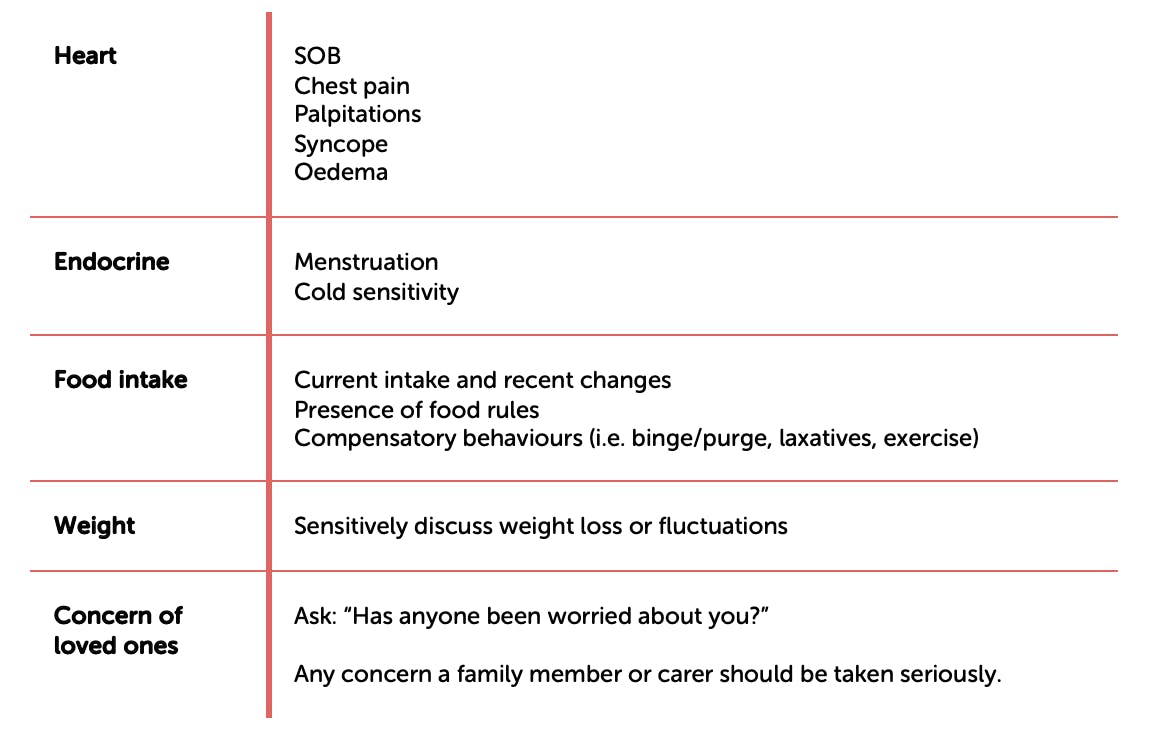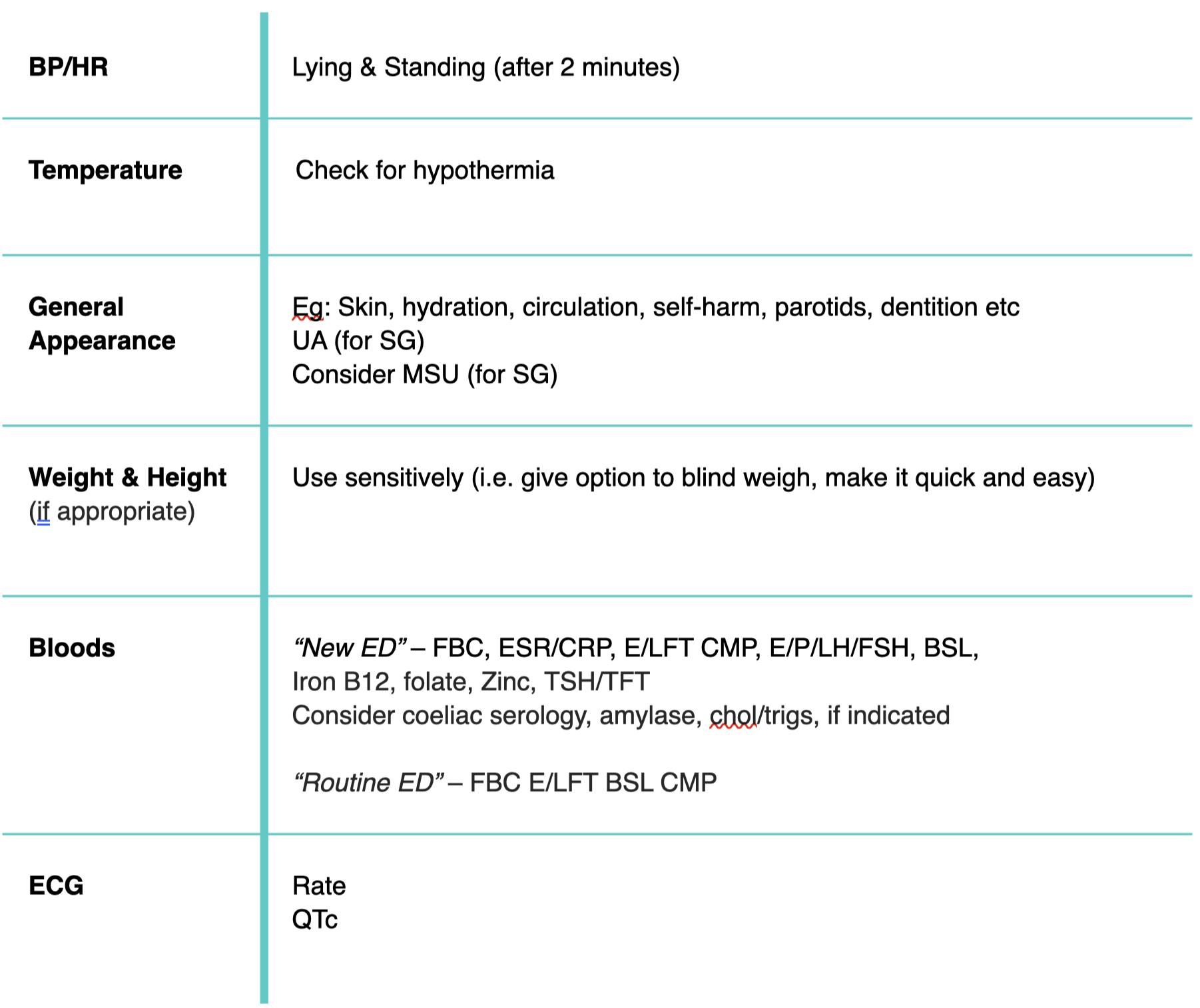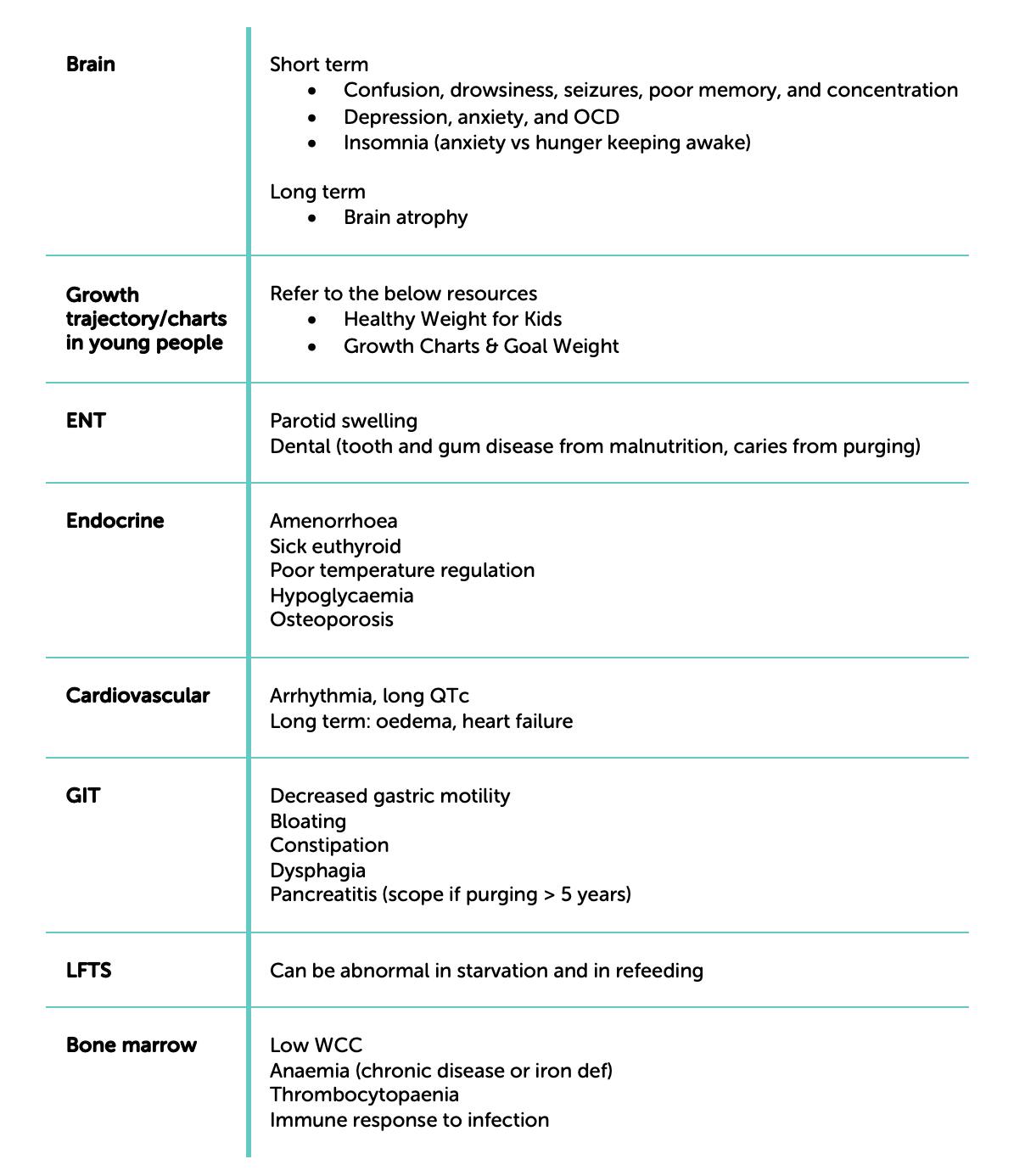Medical & Psychological Treatment
Treatment Goals & Planning
Digital Therapies
Building a Treatment Team
Treatment Rebates
Medical Monitoring: Routine Check-up
Medical Monitoring: Body Systems
Want to learn more?
InsideOut eLearning
Learn more about eating disorders with our suite of online courses for health professionals.
eLearning
Medical Monitoring: Routine Check-up
Routine monitoring is necessary to ensure medical stability
Eating disorders can have significant medical complications and in severe cases can result in death.
The frequency of appointments will change depending on the stage and severity of illness.
Be flexible and be prepared to adapt to the person’s needs.
Weekly appointments are necessary when:
- The person requires inpatient care (but cannot/has not been admitted)
- The illness is acute or chronic
- There are rapid changes in condition
- The patient is a child (prone to rapid deterioration)
Fortnightly or monthly appointments are appropriate when:
- A treatment team has been established, and
- The person’s condition is more stable
See below for medical investigations:
- Routine Medical Check-Up
- Rapid Risk Assessment Physical Examination
- Long-term Medical Investigations
- To be undertaken at follow up appointments
Rapidly assess risk

Physical exam

Longer term medical investigations
After the initial assessment, more comprehensive medical investigations can be undertaken at follow up appointments.
Work your way through these investigations at a pace that works for you and your patient.

GP Dr Jan Orman discusses the importance of routinely monitoring the person's psychological wellbeing, as well as their physical wellbeing.